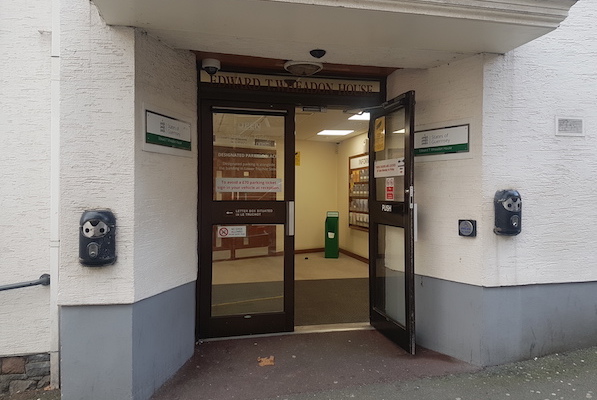


The States of Guernsey doesn’t know how many of its employees are using hybrid working arrangements, but it’s considering recording these numbers going forward.
Responding to questions from Express, the States’ Human Resources department said it has operated flexible working for some time such as job-share and part time, while noting that many of the thousands of public sector workers, such as health staff and those in customer services, cannot work from home or remotely.
For those who can decisions are taken on a case-by-case basis by line managers in each department – with the numbers choosing to work away from the desk said to be varying each week.
The numbers of public servants opting to do this naturally increased in response to the covid-19 pandemic, but also because of the public property rationalisation programme, it added.
The two key government workplaces - Edward T Wheadon House and Sir Charles Frossard House - “operate the hybrid working policy to maximise the capacity of the buildings".
With covid restrictions tailing off in 2022, the States said the number of civil servants working from home “will have reduced significantly once staff were able to return to the office environment.
“The flexible working and hybrid working polices do not differ by staff group or location but are based on the nature of the role and service in question.
“Hybrid working requests have to be made in line with the policy and are approved by the service manager. Requests will only be approved in commensurate with the role, and approval can be withdrawn by the service manager if needed."

Pictured: Many services have been moved into Edward T Wheadon house in recent years.
“Further consideration can be granted by managers in relation to hybrid-working, such as compressed hours or remote working. However, these types of arrangements are only if appropriate for the role and have to be agreed by the service manager – keeping the focus on service delivery and high-quality outputs from employees.
“The management of which and how many individuals are homeworking is handled within each team and can vary with some staff following regular patterns and others changing so staff are where they can work most effectively depending on their tasks at that time.
“That said, the emphasis remains on the service provision, and some roles which operate from key States of Guernsey buildings, by their nature mean that home working is not appropriate such as reception and customer service staff. It may also be that the employee is unable to work from home due to lack of a suitable working environment.
“The majority of public service roles are not suitable for remote/home working. Aside from the obvious areas such as nursing, teaching and policing, many more administrative roles are not suitable for home working as they are customer facing or require access to specific IT systems."

Pictured: Not all public sector employees have the benefit of remote working.
The States said hybrid working isn't included as a benefit in States job adverts, or in job descriptions, but flexibility may be highlighted in some part- or term-time positions.
“Flexible working arrangements help to attract candidates to roles within the public sector, which is all part of ensuring that services can be provided by a resilient workforce,” it said.
“Flexible working arrangements can support individuals to take up meaningful employment, whilst balancing other requirements such as caring responsibilities and at the same time ensuring that public services required by Bailiwick residents can be delivered as needed and that the various service areas have the right people with the right skills in place.”
Comments
Comments on this story express the views of the commentator only, not Bailiwick Publishing. We are unable to guarantee the accuracy of any of those comments.